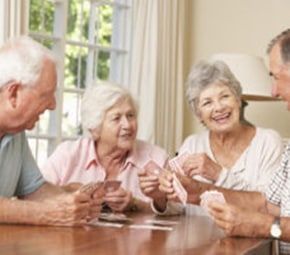In addition to a nutritious diet and regular exercise, it is also important that seniors take part in activities that make them feel good and energetic as part of their healthy lifestyle in an assisted living facility. Finding hobbies like arts and crafts for seniors in assisted living, that are enjoyable, helps to improve their mental health and reduces the chances of isolation.
Here are five healthy and fun hobbies for seniors to consider:
- Walking – As simple and obvious as it sounds, walking is a great activity for senior citizens to take part in. It is simple, costs nothing, and is fairly low-impact.
Walking also offers many benefits, such as maintaining mobility and independence, and can be done just about anywhere! Inviting friends or visiting family members to go on a walk can also help increase seniors’ socialization. - Volunteering – Taking the time to volunteer at the local senior center, fundraising event, or local association can not only provide seniors with great socialization opportunities, but also increases their feelings of self-worth and purpose. Feeling helpful is an important aspect of mental health, and volunteering provides seniors with a way to stay stimulated and engaged.
- Crafting and Art – From painting and sketching to scrapbooking and knitting, arts and crafts are a great way to provide seniors with a fun and artistic way to stimulate their brain and act as a cathartic release. Crafts may sound juvenile, but they are a wonderful way to keep the mind active. Creating art can also be made into a social activity with family and friends, or by participating in a creative art class. Art may actually be used as a therapy for those with cognitive diseases or forms of dementia.
- Yoga – Yoga offers a unique opportunity to strengthen the body while calming the mind, making it a great hobby for seniors to take up. It can also lower stress levels and hypertension.
- Playing Cards and Games – From Scrabble to Solitaire, all kinds of card games and board games are great ways for seniors to keep their minds engaged and sharp while also having fun with friends. Word games, such as crossword puzzles, also help to keep the brain fit.
It is incredibly important for assisted living residents to keep both their brains and their bodies engaged every day. For more information on assisted living facilities and how they could help your loved one, contact Angels Senior Living today.






